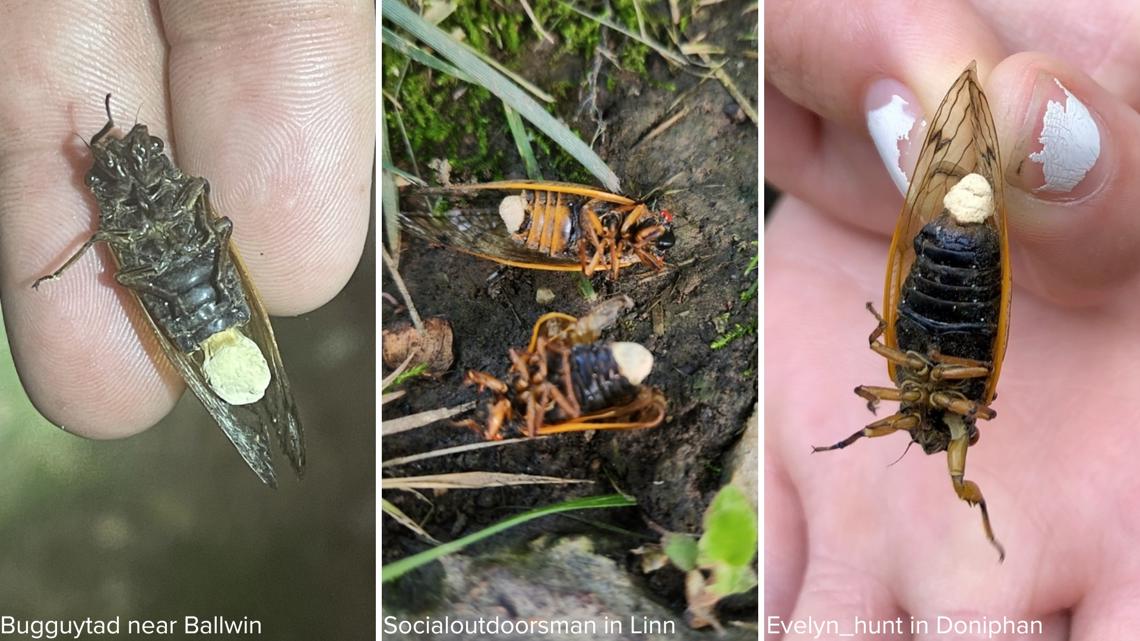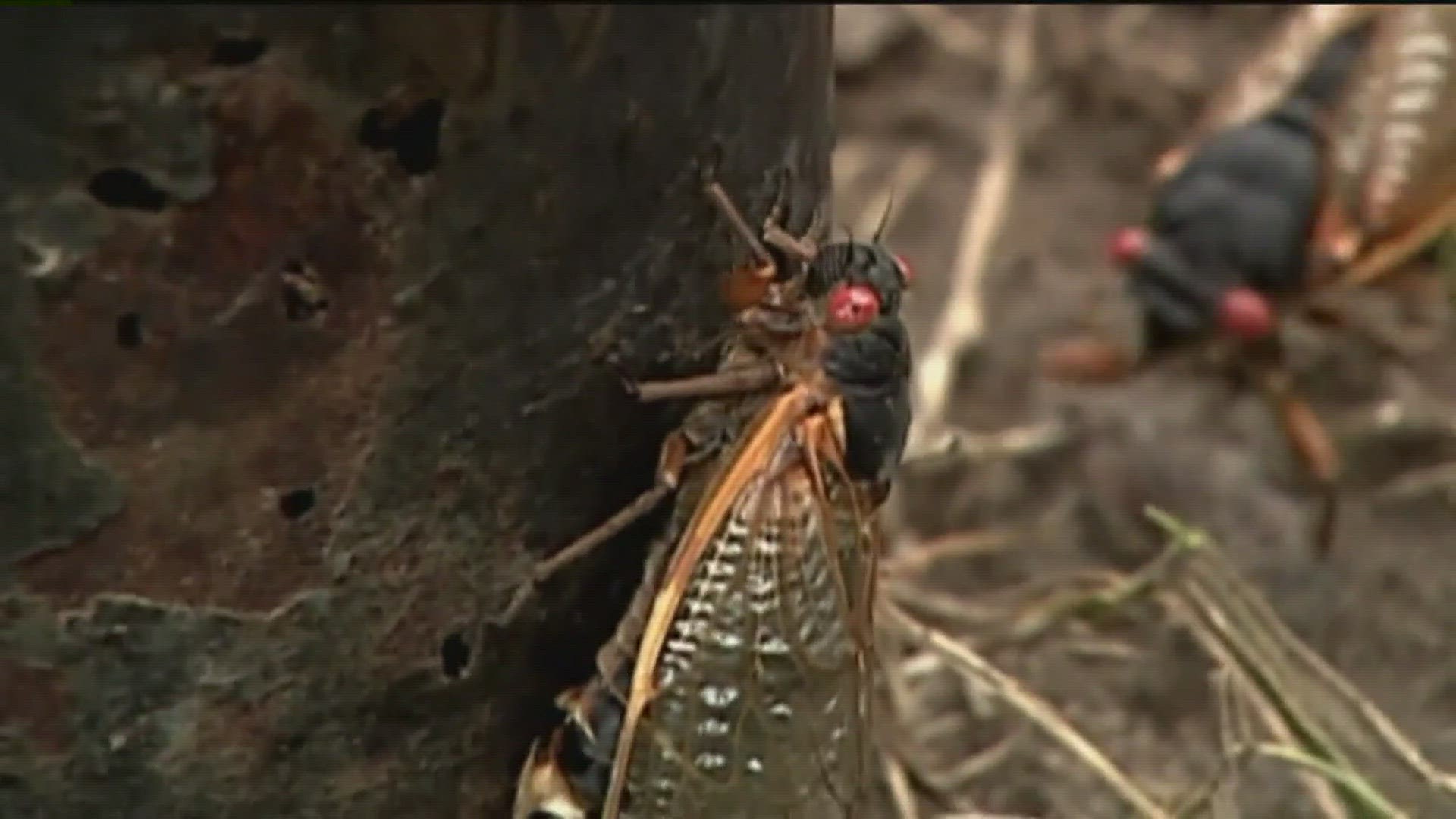MISSOURI, USA — There are imposters hidden among Missouri's emerging periodical cicadas.
While the insects are near the end of their life cycle and begin mating, some cicadas have been hijacked and are using mating rituals to spread fungal spores rather than to reproduce.
RELATED: Yes, cicadas are in full emergence in Missouri and southern Illinois. Here's what that means
The cicadas in question have been infected by Massospora cicadina, a fungal pathogen that affects only periodical cicadas by taking over their bodies and changing their mating behavior to increase the fungus' population. The fungus has been confirmed in Missouri, specifically around the area south of St. Louis.
"About one week after a cicada has emerged and become an adult, basically its abdomen falls apart," said Chris Hartley, the manager of collections, education and facilities at the Sophia M. Sachs Butterfly House in Chesterfield. "It reveals that plug of white fungus mass that's been growing inside the cicadas … which broadcasts more spores that will complete the fungus lifecycle."


Butterfly House Entomologist Tad Yankoski found one of the infected specimens.
The fungus infects cicadas while they're still in their nymph stage underground and slowly takes over the back half of their body one to two weeks after cicadas emerge. The infected cicadas then spread the fungus to healthy cicadas through mating.
"The whole goal of the cicada adult form is to find a mate and have more baby cicadas. These infected cicadas are still driven to mate, but in doing so, they're now spreading the fungus," Hartley said.
Another strange symptom of the fungal infection is how it changes sexual habits within infected cicadas to maximize potential mating. Usually, male cicadas make their droning mating calls, and female cicadas flick their wings to indicate they've accepted the mate.
The infection changes things. Researchers have previously seen infected male cicadas both mimicking female cicadas by flicking their wings and tolerating mounting from courting males, both of which suggest the fungus alters insect sexual norms and gender roles to boost infection rates.
"The life cycle of the spores lines up with the life cycle of the cicadas," Hartley said. "The spores of the fungus will remain dormant for 13 or 17 years, waiting for the next emergence of the periodical cicadas."
Top St. Louis headlines
Get the latest news and details throughout the St. Louis area from 5 On Your Side broadcasts here.

